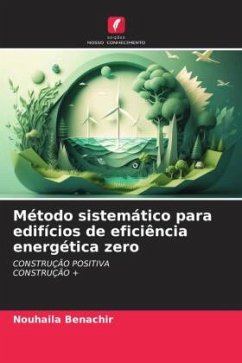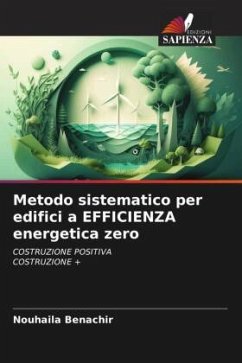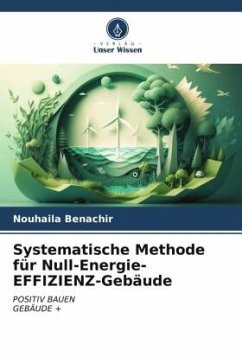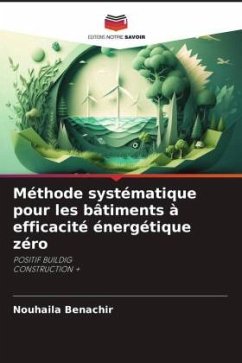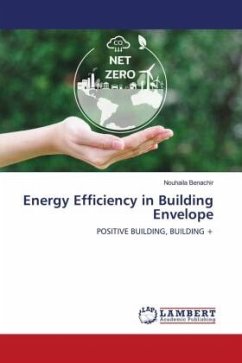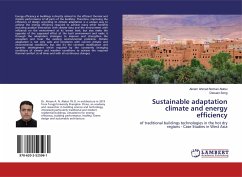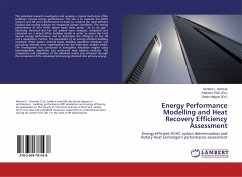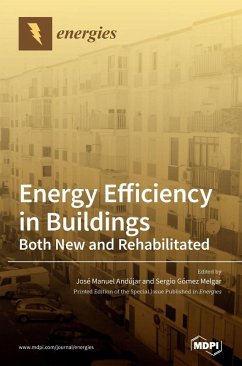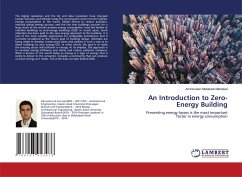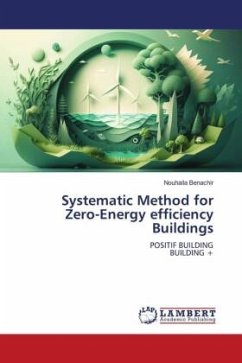
Systematic Method for Zero-Energy efficiency Buildings
POSITIF BUILDINGBUILDING +
Versandkostenfrei!
Versandfertig in 6-10 Tagen
53,99 €
inkl. MwSt.

PAYBACK Punkte
27 °P sammeln!
The energy consumption and environmental sustainability of buildings in Morocco are of significant concern. Current regulations, such as the Moroccan Thermal Construction Regulation (RTCM), do not fully account for the potential benefits of air infiltration and natural ventilation. This oversight may lead to suboptimal energy performance and hinder the goal of achieving sustainable building practices in Morocco. This comprehensive study titled Revamping Morocco's building energy efficiency: engineering & policy ' investigates the importance of air infiltration and natural ventilation in improv...
The energy consumption and environmental sustainability of buildings in Morocco are of significant concern. Current regulations, such as the Moroccan Thermal Construction Regulation (RTCM), do not fully account for the potential benefits of air infiltration and natural ventilation. This oversight may lead to suboptimal energy performance and hinder the goal of achieving sustainable building practices in Morocco. This comprehensive study titled Revamping Morocco's building energy efficiency: engineering & policy ' investigates the importance of air infiltration and natural ventilation in improving energy efficiency, economic performance, and environmental sustainability in buildings, applied to Ifrane, Morocco as a case study.The methodology simulates three scenarios, each with two cases considering no infiltration and infiltration with ACH=1: Simulation 1) Building in RTCM/Reference with no energy gain besides radiation; Simulation 2) Building in RTCM/Reference in a warehouse with energy gains from 10 people and light power of 5 W/m2; Simulation 3) Building with a massive 700 people, increased light power, and appliances per square meter. Natural ventilation is studied for cooling.



